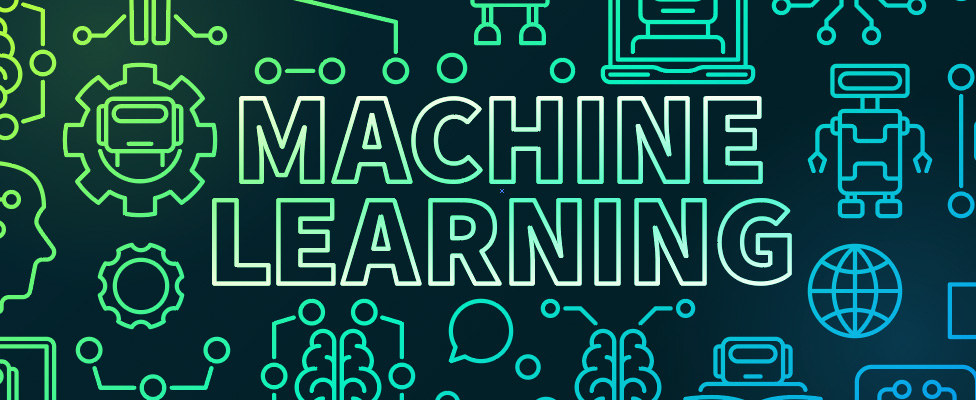It seems as if nowadays everyone’s talking about AI, with an exciting breakthrough coming along every other day. But as with any technological innovation, alongside the enthusiasm, comes concern about the potential loss of jobs.
You can look at it this way. Manual data entry and other routine business tasks are indeed likely to become a thing of the past. It is because algorithms can perform data entry and business tasks faster, more efficiently, and for less money than their human counterparts. The silver lining is that machines, being able to take over lower-skilled jobs, will ultimately lead to us humans being able to focus on higher-value, more fulfilling work.
Fittingly, AI itself is among the opportunities out there for high-skilled candidates. With AI and machine learning evolving in leaps and bounds, startups and huge tech companies alike are recruiting massively. Moreover, they are ready to pay big money for top talent.
Let’s take a look at how to get into artificial intelligence and why you should.
The Current AI Landscape


Let’s start with the basics. What does AI stand for? You guessed it – artificial intelligence. While AI is the buzzword of the moment, there is quite a bit of confusion around what it refers to. In addition to this, a lot of people use it interchangeably with the words “machine learning.”
Here, we are going to explore the various AI jobs and careers on offer. The same with the AI courses that you can use to boost your skills because of your exciting new career. Before that, let’s take a moment to go back to basics.
Artificial intelligence is the whole science of teaching machines to think like humans. It is something that humans have been striving for thousands of years. Over the past century, the advent of the internet and huge improvements in computer power fuelled a new wave of breakthroughs in the field. Artificial intelligence has now left the realm of science fiction. Furthermore, it is very much part of our day-to-day lives.
How To Get Into Artificial Intelligence
Getting into artificial intelligence can seem like a daunting prospect, especially if you don’t come from a strong computer science background. A master’s degree in engineering, mathematics, computer science or a similar subject will give you a head start. However, it’s possible to break into the field without a specific (and potentially very costly) AI degree.
If you want to get into artificial intelligence research, it’s a good idea to take some math courses (calculus, linear algebra and probability, and statistics for example). This will help you gain a deeper understanding of AI fundamentals. There are several MOOCs (Massive online open courses) available on platforms such as Coursera or edX. Once you have the fundamentals in place, you can move on to courses that specifically deal with AI and its applications. These involve neural networks, deep learning, and the Artificial Intelligence MicroMasters offered by Columbia via edX. If you’re interested in learning more about the philosophical aspects of artificial intelligence, check out the Humans and Autonomy Lab at Duke Robotics Facility.
Tutorials And Courses For Beginners
The information above will provide you great fundamentals to understand AI as a science and its various applications. If you’re more interested in getting into applied AI, it’s essential to develop your programming skills via high-quality AI tutorials. Python will serve you well here. If you’re a beginner, check out the Programming for Everybody (Getting Started with Python) course on offer at Coursera. In addition to this, Harvard offers a Data Science certificate that gives a good overview of working with data. Some are using the R programming language for a variety of tasks linked to data science.
Companies Struggling For Artificial Intelligence Professionals
When companies boast that their products are powered by artificial intelligence, in many cases, they mean machine learning. ML is a subset of AI in which algorithms peruse, analyze, and interpret data to make informed decisions. Nowadays, machine learning powers many of the applications that we use every day. The product recommendations we come across on sites such as Amazon, home appliances such as smart speakers, and our social media feeds and streaming services like Spotify and Netflix all make use of machine learning.
The demand for skilled artificial intelligence professionals has increased exponentially. This is because more and more industries are navigating their digital transformation. Gartner estimates that by 2020, AI-relevant fields will create 2.3 billion jobs. According to recent research, the demand for AI skills has doubled over the past couple of years with companies struggling to fill positions.
Nowadays, there is a scarcity of professionals with the right skills combined with strong demand. Because of this, companies are preparing to offer big money to the right candidates. The average machine learning engineer earns between $125,000 and $175,000. Rumor has it that some tech giants are offering from $300,000 to $500,000 to promising young graduates.
Take a look at some of the AI jobs on offer at the moment. These will help you on how you can get into artificial intelligence.
Five Hot AI Jobs You Should Consider
1. Machine Learning Engineer
Machine learning engineers are responsible for designing and building platforms for machine learning projects. They are some of the most sought-out professionals in the artificial intelligence sector. They tend to command impressive salaries of $134K on average.
ML engineers need to apply predictive models and natural language processing to huge datasets. When it comes to hiring, they prefer people with experience in agile development practices, strong mathematical skills, and a master’s degree or Ph.D. in computer science or mathematics. You should have a background in applied research and data science. Moreover, you need to demonstrate a good knowledge of multiple programming languages (such as Python, Java, and Scala). These qualifications will help you to become a machine learning engineer.


2. Data Scientist
If you’re interested to get into artificial intelligence by becoming a data scientist, a high-level degree in computer science will serve you well. Moreover, an advanced degree in engineering or mathematics can suffice, depending on your level of experience.
Data is the backbone of artificial intelligence and machine learning. Data scientists are the ones collecting, analyzing, and interpreting large and complex datasets. Using both machine learning and predictive analytics are equally important. They also play a crucial role in the development of algorithms.
To become a data scientist, you must be familiar with platforms and tools. These include Hive, Hadoop, MapReduce, Pig, and Spark. You also need to have experience in computing and programming languages such as Perl, Python, Scala, and SQL.
Beyond strong technical knowledge, data scientists need to possess good communication skills, for this will help them to share their findings with business leaders. This particular artificial intelligence job commands a salary of around $130K on average.


3. Research Scientist
Research scientists are experts in multiple artificial intelligence-related fields. These include computational statistics, applied mathematics, machine learning, and deep learning. For this reason, they are in strong demand and can command reasonably high salaries.
Research scientists are highly-skilled individuals. Moreover, they seek to advance the field of AI by developing systems enabled with human-level intelligence. An advanced master’s degree or Ph.D. in computer science is often required. Equally important is the extensive knowledge of computer perception, graphical models, reinforcement learning, and NLP.
However, some companies accept individuals who don’t have advanced degrees in a similar field. This is only if the candidate can demonstrate the requisite amount of experience. Do you think this artificial intelligence job is for you? You’re looking at a salary of around $83K.
4. Business Intelligence Developer
If you’re wondering how to get into artificial intelligence without a high-level degree, this may be the answer. Business intelligence developers are usually not required to have an advanced degree in computer science. A bachelor’s degree is usually sufficient when combined with experience. However, other artificial intelligence careers require otherwise.
Business intelligence developers need to possess strong technical and analytical skills. Moreover, they should also have the ability to communicate with non-technical colleagues. The primary objective of their role is to analyze the complex datasets to identify trends. This helps in improving the efficiency and profitability of businesses.
Business intelligence developers are ideally positioned to help companies navigate their digital transformation. For that reason, they are very much in demand as more and more businesses go through the process. They can expect a salary of around $90K.


5. Big Data Engineer
If you want big salaries, you should think about a career as a big data engineer or architect. In a field known for its tempting salaries, big data engineers command a salary of around $116K.
Most recruiters require big data engineers to have a Ph.D. in mathematics, computer science, and engineering. However, a similar field, as well as considerable experience with C++, Java, Scala, and Python, will also do. These highly-skilled professionals’ tasks are designing and building big data environments that enable the connection of data across business systems.
Final Thoughts
So what can we take away from all this? The main challenge when it comes to how to get into artificial intelligence isn’t a lack of quality resources or opportunities. Rather, it’s deciding where to start.



























